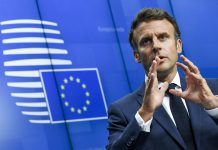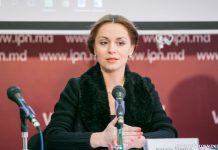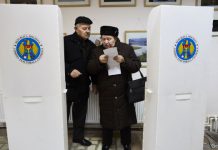A year ago, Moldova suffered Kyrgyzstan-style public disorder following contested elections, which ended with a new pro-EU government pushing a reform agenda taking power. Lenders and investors took note, and on March 24 the Moldova Partnership Forum brought together sponsors and investors at a major donor conference in Brussels.
"The Moldova Partnership Forum held in Brussels was about two important things: trust and commitment," Melanie Marlett, World Bank country head for Moldova, tells bne. "Trust from the international community in the government’s reform programme and commitment to supporting Moldova’s development and modernization agenda."
As well as a total of $2.6bn pledged by institutions for critical investments in roads, access to water and sanitation, agriculture, energy, health, regional development and social protection, the March conference was also about positioning Moldova as the entirely unexpected star pupil from among the EU’s "Eastern Partnership" pupils, says Marlett. The small country often cursorily referred to as "Europe’s poorest country" has leapfrogged established reform favourites such as Ukraine. "Moldova’s commitment to European integration and its willingness to embrace change and implement even tough reforms has put Moldova on the map in Brussels in a very positive way," Marlett enthuses.
This optimism is all the remarkable given that the crisis hit Moldova late but very hard. "Moldova’s economy has been severely weakened by the global crisis," Marlett acknowledges. From 2000-2008, growth averaged 6%, led by consumption financed from remittances from Moldovan migrants. The crisis exposed the vulnerability of this growth path, with remittances falling by 29% in 2009, GDP by 6.5% and household consumption by around 12%.
But the new reformist Alliance for European Integration, taking office after nine years of Communist Party rule, quickly developed an Economic Stabilization and Recovery programme focusing on putting the country’s finances in order, liberalizing markets and improving the business environment, and thus successfully garnered international financial support when in January the International Monetary Fund (IMF) agreed to lend it $574m.
Singapore on the Dniester
But this won’t be sufficient on its own. "The global economic crisis has exposed the vulnerability of a remittance-based growth model. Moldova needs to start thinking about its future growth model. What are the potential sources of growth for Moldova?" asks Marlett. Here, World Bank thinking takes on board not only European, but also Asian, specifically Singapore’s, experience with information and communication technologies (ICT).
IT currently constitutes 10% of Moldovan GDP, with 25,000 employed in the sector, according to statistics provided at an USAID Information and Communication Technology Summit in Chisinau on March 30. "The experience of countries like Singapore transforming the way government does business through the use of ICT is an example of how modern technology can reduce public spending, eliminate the human factor and thus minimize the risk of corruption, and deliver a better, faster and cheaper service to citizens and businesses," argues Marlett. The World Bank has consequently helped launch an ICT partnership between the two states, with Moldova signing an agreement with Singapore to draw on its experience.
A major obstacle, though, is that Moldova still has a criminally low broadband internet penetration of around 6% – not surprising considering a majority of the population is rural. "The government recently approved a decision to liberalize international broadband Internet connectivity. This will increase competition on the domestic market and lower internet costs for the end user."
In addition to the use of broadband, the World Bank is also exploring the use of mobile services – eg. m-banking, m-health, m-agriculture – as a way to reach an even wider audience, as penetration of mobile telephone use in Moldova is 70%.
These ideas have been incorporated into the government’s own reform programme called "Rethink Moldova" that was endorsed at the donor conference. Among the more specific measures proposed is the restructuring and even privatization of national telecommunications provider Moldtelecom and the building of technology parks. A study by EU technical experts identified five potential locations for industrial parks, requiring estimated investment of €73m. The government is also planning investment in optical fibre infrastructure and an onâ€ground digital television network.
The global media labeled last year’s Chisinau protests as the "Twitter Revolution," but it was more a case of Twitter putting Moldova on the map than vice versa: protest leader Natalia Morar later acknowledged that she had only opened a Twitter account the day after the protests occurred, with "traditional" Russian social networks such as Vkontakte.ru and Odnoklassniki.ru playing the key role. But this is still a strong indication of connectedness among the younger generation, and of the potential for social change of ICT that Moldova appears to be placing much of its hopes upon.






